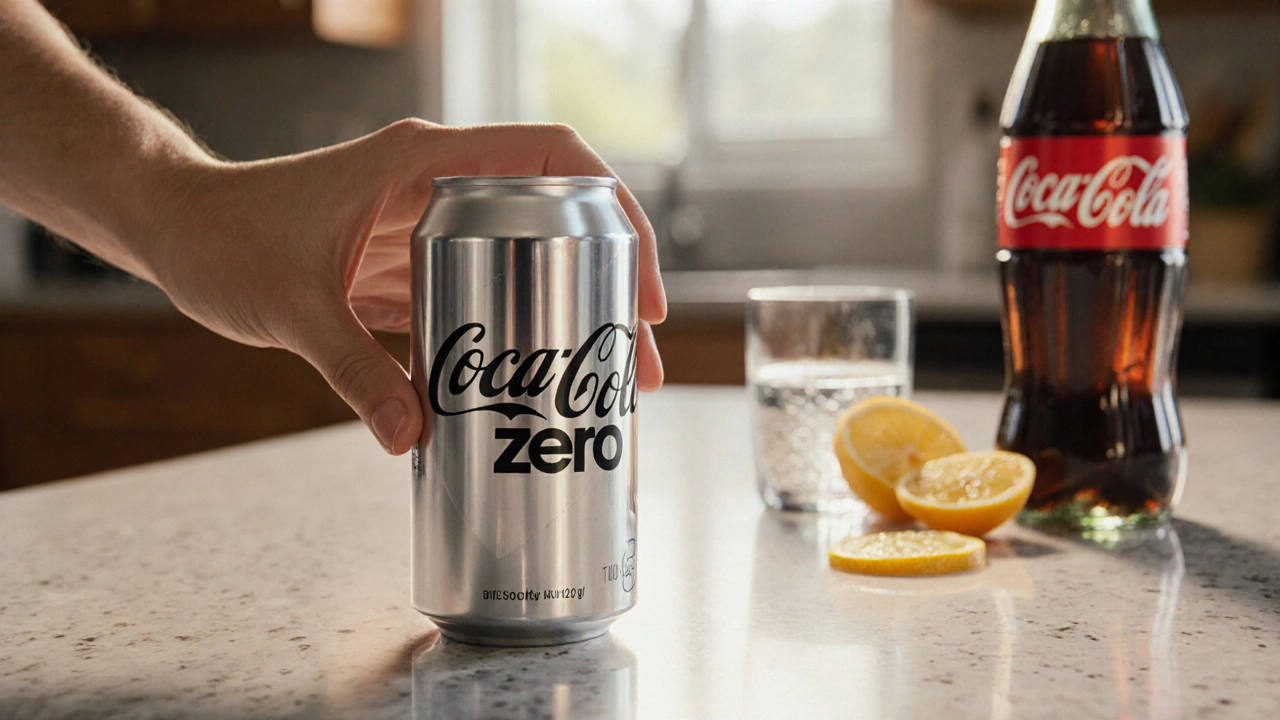Coke Zero: The Zero‑Calorie Soft Drink Explained
When talking about Coke Zero, a zero‑calorie cola marketed as a sugar‑free alternative to regular Coke. Also known as Coke Zero Sugar, it replaces sugar with artificial sweeteners while keeping the classic cola taste. The drink sits squarely in the broader category of Zero calorie drinks, beverages that contain little to no calories, often using artificial sweeteners. Its sweet‑taste comes from Artificial sweeteners, low‑calorie sugar substitutes such as aspartame, acesulfame potassium, or sucralose, which allow the product to stay calorie‑free. At the same time, Coke Zero delivers a modest dose of Caffeine, a natural stimulant that can boost alertness but may also raise heart rate in sensitive individuals. Understanding how these three pieces fit together helps you decide if switching from sugary sodas makes sense for your lifestyle.
Health Angles, Performance Impact, and Everyday Use
Zero‑calorie sodas like Coke Zero are often praised for helping people cut sugar without losing the fizz they love. The artificial sweeteners they use don’t add calories, which means they can support a calorie‑deficit plan for weight loss or belly‑fat reduction—topics we see in articles about low‑calorie energy drinks. However, the sweeteners also interact with gut microbes and insulin signaling, which some studies link to cravings or subtle metabolic shifts. If you’re watching your blood pressure, the caffeine content matters: a standard can has about 34 mg of caffeine, enough to give a mild boost but not enough to spike blood pressure for most healthy adults. Still, people with hypertension or a tendency toward rapid heartbeats should test their response, especially after other caffeine sources. Performance‑focused readers will notice that Coke Zero sits between a pure water refill and a high‑caffeine energy shot. It provides hydration without the sugar crash, yet its caffeine level is lower than most dedicated energy drinks discussed in our Fast Stomach Slimming with Low‑Calorie Energy Drinks guide. For athletes, the drink can act as a palate cleanser during training sessions, but it won’t supply the electrolytes or carbs needed for prolonged endurance. If you ever feel your heart racing after a can—a scenario covered in our “How to Stop Heart Racing After an Energy Drink” article—the recommended steps are to hydrate, practice slow breathing, and consider limiting your intake to one per day. Another angle is the impact on blood pressure. While Coke Zero’s caffeine can cause a temporary rise, the overall effect is generally modest compared to sugary sodas, which can contribute to higher blood pressure via added sugar and weight gain. Our deep dive on beetroot juice shows that natural nitrates can actively lower blood pressure, offering an alternative beverage for those needing a stronger effect. In short, swapping regular Coke for Coke Zero may reduce sugar‑related risks, but it’s not a magic bullet for cardiovascular health. Lastly, taste perception plays a hidden role. Many users report a lingering after‑taste with artificial sweeteners, which can influence snack choices later in the day. If you notice extra cravings after drinking Coke Zero, you might be experiencing a sweet‑taste illusion that triggers the brain’s reward pathways, nudging you toward more carbs. Awareness of this subtle cue can help you stay on track with nutrition goals. Overall, Coke Zero offers a convenient, low‑calorie way to enjoy a cola flavor while delivering a modest caffeine kick. Pair it with a balanced diet, keep an eye on how your body reacts, and you’ll have a clearer picture of whether it truly fits your health plan.
Below you’ll find a curated collection of articles that dig deeper into the topics we touched on—low‑calorie drinks, caffeine effects, blood pressure management, and practical tips for staying energized without the sugar surge. Browse the list to see how each post expands on the benefits, potential drawbacks, and smart ways to incorporate Coke Zero or similar beverages into your daily routine.
A practical look at whether a daily can of Coke Zero is safe, covering caffeine, artificial sweeteners, health guidelines, and tips for balanced consumption.

